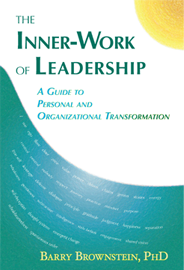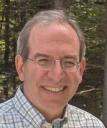In mid-November, author and minister, Hugh Prather unexpectedly passed. Although I never met him, he has been one of the most important teachers in my life. His book, Notes to Myself, has sold over 5 million copies. For a non-fiction book to sell over 100,000 copies is very unusual; to sell over a million copies is an exceptionally rare feat. Hugh was a prolific writer. I have at least fifteen of his books on my shelves. Through Hugh’s openness and authenticity, he invited us to enter into a conversation with his words.
Hugh was the first author who helped me begin to realize that when I choose my ego as a guide, the world is not to blame for my decision. Recognizing that the real choice is in my mind, and not in the world, I have the power to go back to my mind and choose again.
Hugh was a keen observer of how often we try to escape from responsibility by blaming our ego, as if the ego were an entity outside of ourselves that has “possessed” us. Yes, we are not really our ego. But, if in this moment we have chosen to be guided by our ego, we have chosen it; it has not chosen us. Hugh writes pointedly:
The ego part of us does not act independently of our wishes, because it is us… If we are still judgmental of our teenager; then we still want to be judgmental of our teenager. If we are still confused about what our partner wants from us, then we still want to be confused.
I was visiting Philadelphia about thirty years ago when I first met Hugh’s books. I purchased the now classic, but then just published, Love is Letting Go of Fear by Dr. Jerry Jampolsky. Jerry’s brief book introduced me to another book, A Course in Miracles, which became a major inspiration on my spiritual journey. I was drawn to the Course yet frightened of its premises. I needed an intermediary to reduce my fear and that intermediary was Hugh Prather with his trilogy of books based on A Course in Miracles: There is a Place Where You Are Not Alone, The Quiet Answer, and A Book of Games. I read and reread these books for several years until I was ready to begin my study of A Course in Miracles.
Hugh’s teachings often returned to a premise of A Course in Miracles: The world we see is an “outside picture of an inward condition.” To be a little bit more specific, the world we react to is an outside picture. So, for example, if we react to (as opposed to discern) the coercive and arbitrary procedures of TSA agents, we can ask ourselves a question: Have I ever exercised power in a coercive and arbitrary fashion? Asking this question isn’t meant to justify TSA policy. But asking the question helps us release our anger and helps us respond more effectively. In There is a Place Where You Are Not Alone, Hugh explains that every person we meet has something to teach us about ourselves:
Today, as every day, you are studying under a great spiritual teacher. He has in his service assistants whom he has trained to read thoughts and, through pantomime, voice and behavior, to act out the thoughts they read in perfect symbolism. Whenever one of these assistants stands before you, you will immediately recognize the basic content of your thinking. You can safely make this assumption: Everyone you meet today will be one of these assistants.
In Notes to Each Other, a book co-written with his wife Gayle, Hugh and Gayle remind us that our ego continually asks useless questions, distracting us from our only real choice which is to choose our state of mind:
What should I say? What should I do? When I am centered on these questions I am attempting to change the form of my relating without changing its content. Behavior follows attitude. I want to aim for consistent attitude, not consistent behavior. There can never really be a question of what to do, of how of how to treat each other, because the starting point is a loving state of mind.
For several years, I took walks listening to audio cassette tapes of Hugh’s melodic and gentle voice delivering sermons to the congregation at his Dispensable Church in Santa Fe, New Mexico. One of his sermons has stayed with me for over twenty years. “People,” he said gently but firmly, if you were in your car and had an attack of diarrhea, you would pull over and take care of the problem. Yet, moment by moment, you allow your mind to attack, to be angry, and to hold grievances, without doing anything about it. He was pointing out how tolerant we are of attack thoughts and unhappy wanderings of our mind.
Hugh exuded authenticity; you knew he was walking the talk. He had not relinquished his ego but there was never a moment that he was not committed to turning away from his ego and towards God. Yet, he never played a holier than thou card. Indeed, in a reflective essay, he allowed that “spiritual” individuals often don’t walk the talk:
It’s ironic that individuals with strong spiritual beliefs often have larger egos, are more rigid, are more unconsciously judgmental, and are more uncomfortable to be around than people who have little interest in pursuing mystical, religious, or metaphysical teachings. Those who value the concept of oneness often lack the desire to feel oneness and equality with anyone.
Of his many books, Hugh’s personal favorite was Morning Notes. In this selection, Hugh shows us that when we judge we “surrender self-control”:
When I decide to judge, I also decide to shift my power to the object of my attack. And although I may start by judging one thing only, by believing that even a single judgment is justified, I affirm the validity of the entire process of judging. In that instant I become a keyboard upon which any individual event can sound out the notes of my personal history. Now I am a passive instrument through which anyone and anything can play my preprogrammed tune—even though no one else can hear it.
In The Quiet Answer, Hugh shows that by judging we surrender more than self-control; we keep happiness away:
There is no fear greater than the fear of being happy. There is no reluctance more deeply seated in the unwillingness to see all faults and sins are simply mistakes. Who could honestly denounce another if it was admitted that all he had done was make a mistake? Instead, the other is seen as selfish and internally dark, a thing unworthy of life, to be attacked and weakened. To have any hope of happiness, we must first recognize those times we are afraid of the innocence of others. They are the same moments as when we ourselves resist feeling gentle and free. We mistakenly believe that our sense of self-worth comes from how we compare to others, and that to see them as innocent would reflect badly on us. So we remain hard and exacting in order not to allow any evidence of guilt to go unnoticed. But our fear of the sinlessness of what God has created also leaves no possibility of recognizing our own inherent worthiness. Let us therefore practice genuine self-interest. Let us renounce anxiety and try in its place an experiment in kindness.
Although the Saturday Night Live spoof “Deep Thoughts” was inspired by Hugh’s journal type books, Hugh’s numerous short aphorisms were anything but superficial; on the contrary, they cut to the heart of the matter by reminding us we can always make another choice. Here is an example from Spiritual Notes to Myself: “When I’ve lost all interest in controlling outcomes, I finally will be free to love everyone my mind rests upon.” Sadly, giving up control is too big a price of admission for most of us. Hugh reflected, “I find that in most counseling sessions, those seeking help don’t really want God. They want their partner, their child, their health, their personality, or the circumstances of their lives changed… We want God to turn to us but we do not want to turn to God.”
In How to Live in the World and Still Be Happy, Hugh wrote that the one thought he hoped he wouldn’t say on his deathbed was: “I haven’t even started. Where did my life go?” He didn’t want ask the question because the answer would be, “You don’t know because you never loved your life enough to notice what controls its direction. You never noticed the part your mind played in every step you ever took. And since you didn’t notice, your life wandered aimlessly and went nowhere.”
“All we will have left at the end of our lives is how we have treated each other and ourselves.”—Hugh Prather



He will be sorely missed, but in his writings, Hugh will live forever. I picked up The Quiet Answer in 1982 and till this day continue to retreat back to this book when I need inspiration… I even loan it out to people who may benefit from the teachings, only to worry they won’t return it… My book is tattered and marked, first with me underlining, then when highlighers came about, it looks like a coloring book in some areas. No matter, this little book has been an inspiraion to me and my life, and Hugh will live forever in my heart.
i have read this article and am trying to get a hold of tapes from his sermons i used to have some if you know of any way thai could get copies i would love to get the set!! ANY HELP MUCH APPRECIATED ROBJON54@HOTMAIL.COM
I am also seeking to find copies of his tapes. If anybody has any information on how i would go about finding them, i’d greatly appreciate it. thanks! melissa.merrill23@yahoo.com
hi mellissa sent to your personal email … I may be able to dig out a couple of his tapes in my bag of cassettes I will look to see if I have one or two of them I am looking for the whole set as well… rob j
The first year of talks is online now!
https://www.facebook.com/groups/183976505740886/
I was able to find the person who has all the master tapes of Hugh’s talks, and, his widow, Gayle, would like for them to be available free of charge for listening online. We are going to start digitizing the cassettes in the next few months — those of you who have listed an e-mail address here, I will send you a link to the website once we have something ready. There are about 150 tapes, so, it might be a couple of years til all are posted, but, we will make the website public once we have a dozen or so lectures on there.
The first year of Hugh’s talks are now online for free listening. There is also a related Facebook page for discussion —
https://www.facebook.com/groups/183976505740886/
Hi Sheryl,
What an extraordinary labor of love. What a tremendous resource for all spiritual seekers.Thank you for sharing the update here.
Thank you for your kind words. Please share the links with anyone you think would find the talks to be of interest. These messages of peace are really needed in the world today.